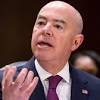Columbia University President Faces Difficult Road Ahead as ...

Antisemitism on Campus
- liveProtests at ColumbiaApril 18, 2024, 4:05 p.m. ET
- Columbia Antisemitism Hearing
- The Turmoil at Colleges
- Schools Warn Demonstrators
- U.S.
- World
- Business
- Arts
- Lifestyle
- Opinion
- Audio
- Games
- Cooking
- Wirecutter
- The Athletic
Antisemitism on Campus
- liveProtests at ColumbiaApril 18, 2024, 4:05 p.m. ET
- Columbia Antisemitism Hearing
- The Turmoil at Colleges
- Schools Warn Demonstrators
Antisemitism on Campus
- liveProtests at ColumbiaApril 18, 2024, 4:05 p.m. ET
- Columbia Antisemitism Hearing
- The Turmoil at Colleges
- Schools Warn Demonstrators
Supported by
In Congress, Columbia’s Leaders Try to Please. At Home, They Face Anger.
For Columbia’s president, Nemat Shafik, a hearing on antisemitism went relatively well. But on campus, intense protests suggest a difficult road ahead for the university.
- Share full article
- 145


Follow live updates on Pro-Palestinian protests at Columbia University.
Representative Elise Stefanik leaned into the microphone and volleyed a series of questions at the university president sitting in front of her. It was about three hours into a congressional hearing examining antisemitism at Columbia University, and the president, Nemat Shafik, paused, sighed and gave a nervous laugh.
Ms. Stefanik had asked whether the university would remove a professor who praised the Oct. 7 Hamas attack from a role as chair of the university’s academic review committee.
After a few seconds, Dr. Shafik responded. “I think that would be — I think, I would, yes. Let me come back with yes,” she said.
Republican lawmakers on the House Committee on Education and the Work Force had come ready to pounce. They tested for weaknesses and prodded vulnerabilities, while their witnesses, a group of Columbia leaders, seemed conciliatory.
And yet, by the end, it seemed Dr. Shafik and other campus leaders had successfully diffused Republican lines of attack, repeatedly and vigorously agreeing that antisemitism was a serious problem on their campus and vowing that they would do more to fight it.
But as Dr. Shafik spoke, the tempest that she had been brought in to account for appeared to intensify. Back on campus in Manhattan, pro-Palestinian students erected an encampment with dozens of tents on a central campus lawn, vowing not to move until Columbia divested from companies with ties to Israel and met other demands. Hundreds of other students joined them to rally throughout the day.
We are having trouble retrieving the article content.
Please enable JavaScript in your browser settings.
Thank you for your patience while we verify access. If you are in Reader mode please exit and log into your Times account, or subscribe for all of The Times.
Thank you for your patience while we verify access.
Already a subscriber? Log in.
Want all of The Times? Subscribe.


 United States
United States Argentina
Argentina  Australia
Australia  Austria
Austria  Brazil
Brazil  Canada
Canada  Chile
Chile  Czechia
Czechia  France
France  Germany
Germany  Greece
Greece  Italy
Italy  Mexico
Mexico  New Zealand
New Zealand  Nigeria
Nigeria  Norway
Norway  Poland
Poland  Portugal
Portugal  Sweden
Sweden  Switzerland
Switzerland  United Kingdom
United Kingdom 

































